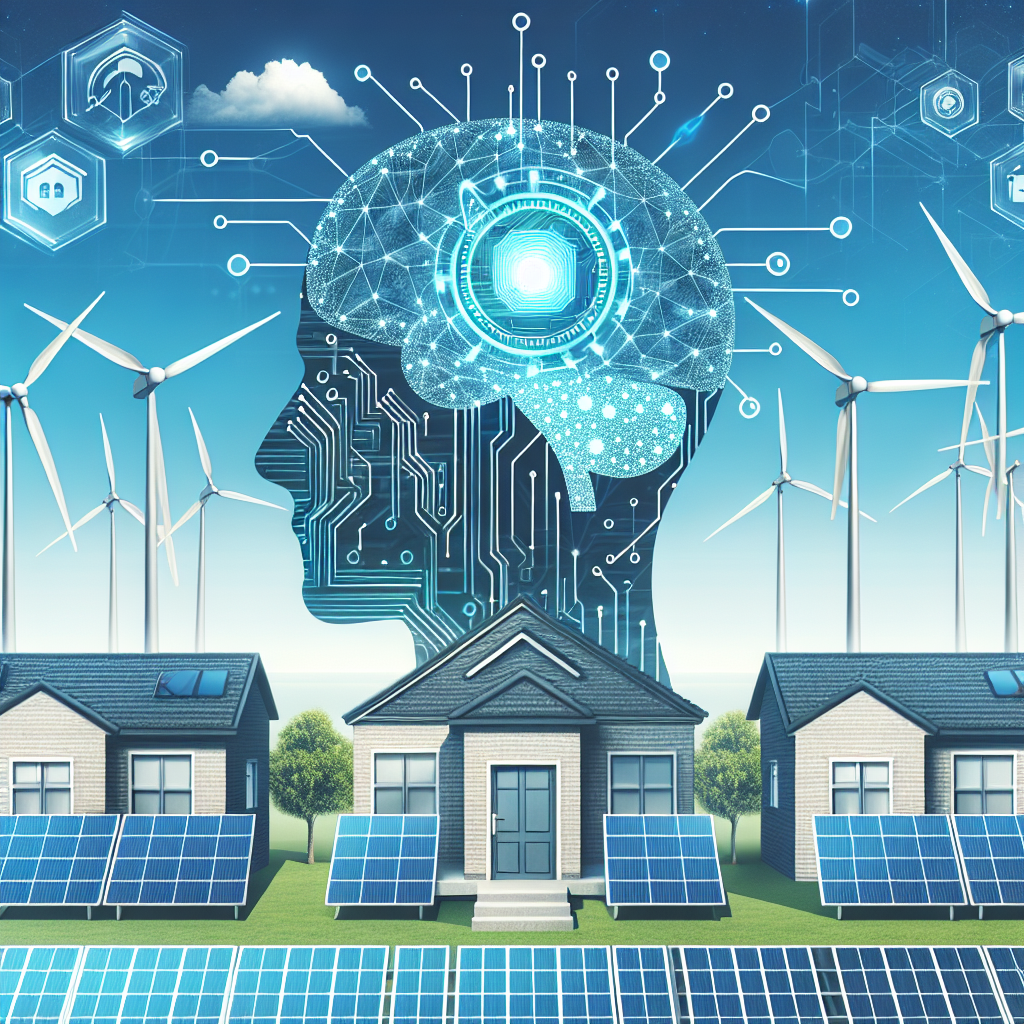In recent years, the integration of artificial intelligence (AI) into smart home energy management systems has revolutionized the way we consume and manage energy in our homes. As the world shifts towards renewable energy sources, such as solar and wind power, the need for efficient energy management solutions has become increasingly important. AI technologies have proven to be instrumental in optimizing energy consumption, reducing costs, and maximizing the use of renewable energy sources in smart homes.
AI applications in smart home energy management for renewables encompass a wide range of technologies and techniques that enable homeowners to monitor and control their energy usage more effectively. These applications use advanced algorithms and machine learning to analyze data from various sources, such as smart meters, weather forecasts, and energy production systems, to make informed decisions about energy consumption and production. By leveraging AI, smart home energy management systems can automatically adjust energy usage based on real-time data, optimize the use of renewable energy sources, and improve overall energy efficiency.
One of the key benefits of using AI in smart home energy management is the ability to optimize energy consumption based on user preferences and environmental conditions. For example, AI algorithms can analyze historical energy usage data to identify patterns and trends, helping homeowners make informed decisions about when to use energy-intensive appliances or devices. By taking into account factors such as weather forecasts, energy prices, and user preferences, AI can adjust energy consumption in real-time to minimize costs and maximize the use of renewable energy sources.
AI applications in smart home energy management also enable homeowners to monitor energy usage remotely and make adjustments from anywhere using a mobile device or computer. This level of control and flexibility allows homeowners to optimize energy consumption even when they are not at home, ensuring that energy is used efficiently and effectively. Additionally, AI can provide insights and recommendations to help homeowners make informed decisions about energy usage, such as suggesting the most cost-effective times to run appliances or recommending energy-saving measures.
Another important aspect of AI applications in smart home energy management is the ability to integrate renewable energy sources, such as solar panels and wind turbines, into the system. AI algorithms can analyze data from these energy sources, along with information about energy demand and usage patterns, to optimize the use of renewable energy and reduce reliance on traditional energy sources. By maximizing the use of renewable energy, homeowners can reduce their carbon footprint and lower their energy costs over time.
In addition to optimizing energy consumption and integrating renewable energy sources, AI applications in smart home energy management can also help homeowners identify and address energy inefficiencies in their homes. By analyzing data from smart meters, sensors, and other monitoring devices, AI algorithms can detect patterns of energy wastage and recommend solutions to improve energy efficiency. For example, AI can identify appliances or devices that are using excessive energy and suggest ways to reduce their consumption, such as upgrading to more energy-efficient models or adjusting usage patterns.
Overall, AI applications in smart home energy management for renewables offer a range of benefits for homeowners, including increased energy efficiency, cost savings, and reduced environmental impact. By leveraging AI technologies, homeowners can optimize energy consumption, integrate renewable energy sources, and identify and address energy inefficiencies in their homes, leading to a more sustainable and efficient energy system.
FAQs:
Q: How does AI help optimize energy consumption in smart homes?
A: AI algorithms analyze data from various sources, such as smart meters and weather forecasts, to make informed decisions about energy consumption. By adjusting energy usage in real-time based on this data, AI can optimize energy consumption and reduce costs.
Q: Can AI integrate renewable energy sources into smart home energy management systems?
A: Yes, AI can analyze data from renewable energy sources, such as solar panels and wind turbines, to optimize their use in smart home energy management systems. By maximizing the use of renewable energy, homeowners can reduce their reliance on traditional energy sources.
Q: How can homeowners monitor and control their energy usage using AI?
A: AI applications in smart home energy management allow homeowners to monitor and control their energy usage remotely using a mobile device or computer. This level of control and flexibility enables homeowners to optimize energy consumption even when they are not at home.
Q: What are the benefits of using AI in smart home energy management for renewables?
A: AI applications in smart home energy management offer benefits such as increased energy efficiency, cost savings, and reduced environmental impact. By leveraging AI technologies, homeowners can optimize energy consumption, integrate renewable energy sources, and identify and address energy inefficiencies in their homes.

